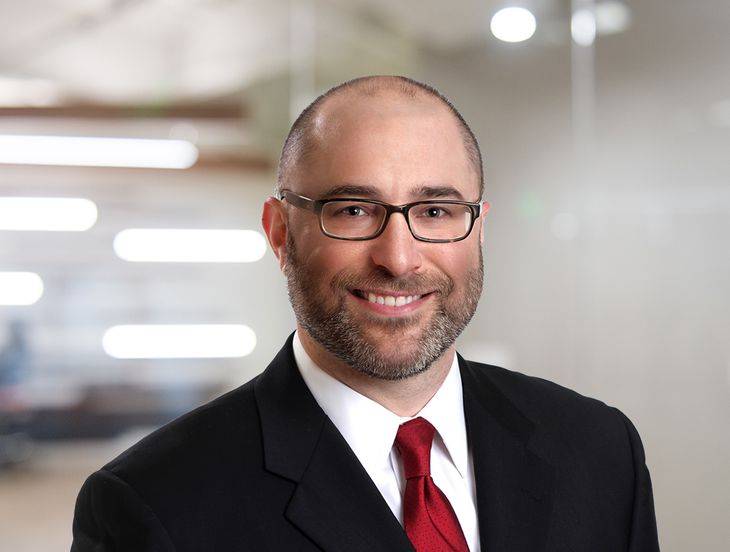WEB EXCLUSIVE: March 2018: The Top 13 Labor And Employment Law Stories
Insights
4.02.18
It’s hard to keep up with all the recent changes to labor and employment law. While the law always seems to evolve at a rapid pace, there were an unprecedented number of changes all through 2017. And if the first three months of 2018 are any indication, things won’t be slowing down anytime soon. In fact, there were so many significant developments taking place during the past month that we were forced to expand our monthly summary beyond the typical “Top 10” list. In order to make sure that you stay on top of the latest changes, here is a quick review of the Top 13 stories from last month that all employers need to know about:
- Another Landmark Ruling: Court Says Transgender Discrimination Violates Federal Anti-Bias Law – In what appears to be the first time a federal appeals court has extended the nation’s main federal employment discrimination statute to cover transgender and transitioning employees, the 6th Circuit Court of Appeals ruled on March 7 that employers cannot discriminate against such employees without violating Title VII. The appeals court also rejected the employer’s attempt to claim that its religious beliefs should shield it from such discrimination claims, opening the door for other applicants, employees, and former employees to avail themselves of statutory anti-bias law. Here are three things employers need to know about the milestone ruling in Stephens v. R.G. & G.R. Harris Funeral Homes, Inc. (read more here).
- FLSA Amendment Bans Employers From “Keeping” Tips – In the budget reconciliation bill passed on March 23, Congress included a rider amending the federal Fair Labor Standards Act (FLSA) to state: “An employer may not keep tips received by its employees for any purposes, including allowing managers or supervisors to keep any portion of employees' tips, regardless of whether or not the employer takes a tip credit.” Furthermore, it provides that the U.S. Department of Labor (USDOL) regulations from 2011 “shall have no further force or effect” to the extent that portions do not address this section as it existed at the time. But the amendment leaves many questions unanswered: Will the USDOL issue a final rule explicitly acknowledging the validity of mandatory tip pooling arrangements that involve non-customarily tipped employees if no tip credit is taken? Or will the agency simply view that issue as settled with Congress striking down parts of the 2011 regulation that started the problem in the first place? Congress has now said that "managers" and "supervisors" may not keep any portion of an employee's tips, but those terms are not defined in the FLSA – will the USDOL issue guidance about which employees fit within those terms? (read more here and here).
- Washington Employers Face Trio Of New Workplace Laws – Governor Jay Inslee signed three major pieces of legislation in March that will affect all employers in the state of Washington:
- Equal Pay For Equal Work: Washington Updates Equal Pay Act For The First Time In Over 70 Years – With heightened attention on gender-based workplace discrimination, Washington recently passed new legislation that creates additional pay equity requirements for Washington employers. Signed into law on March 21, HB 1506 will update and expand the state’s Equal Pay Act (EPA) for the first time since it was enacted in 1943. Although the old version of the EPA was not a prominent source of legal claims, the new law is likely to lead to a surge of claims given that it creates new requirements and enforcement mechanisms. Because the new law will take effect on June 7, 2018, you should carefully analyze your existing policies and practices to ensure compliance (read more here).
- Washington Bars Sexual Harassment Nondisclosure Agreements – In the wake of the Harvey Weinstein scandal and the #MeToo movement, Washington employers will soon need to comply with two new laws aimed at preventing sexual harassment and assault in the workplace while encouraging open discussion about such problems. The new laws—which most notably restrict your ability to require nondisclosure agreements covering sexual harassment—were unanimously passed by the state legislature on February 28, and signed them into law on March 21 (read more here).
- Washington State “Bans the Box” – Washington has joined a growing list of states and cities to restrict criminal history inquiries in the hiring process with adoption of the Washington Fair Chance Act (2SHB 1298), signed into law on March 13. Beginning June 7, 2018, state law will prohibit public and private employers from asking about arrests or convictions until after an applicant is determined otherwise qualified for a position (read more here).
- Department Of Labor Unveils Self-Report Program – The USDOL announced its Payroll Audit Independent Determination (PAID) pilot program to mixed reactions on March 6. The PAID program is meant to provide a framework for employers to proactively resolve potential FLSA wage and hour claims. In a nutshell, an employer will be able to self-report potential violations to USDOL and attempt to resolve the issues efficiently and under the agency’s “supervision,” as outlined on its website. While one can speculate as to what the full terms of the forthcoming pilot program will be—and most likely employers will find them preferable to litigation—thus far the benefits as outlined by the agency, and the risks that accompany them, are not particularly distinguishable from an investigation (read more here).
- The Plot Thickens: Trump Administration Sues California Over New Immigration Laws, Including AB 450 – The ever-escalating dispute between the Trump Administration and the State of California over immigration policy is starting to resemble a Shakespearean drama. U.S. Attorney General Jeff Sessions, speaking at an appearance before law enforcement groups in Sacramento on March 7, announced the filing of a lawsuit against the state of California seeking to invalidate three recent pieces of immigration-related legislation enacted by the California Legislature and signed into law by Governor Jerry Brown. SB 54 enacted a statewide version of a so-called “sanctuary” law, which limits the ability of local law enforcement to cooperate with federal immigration authorities. AB 103 enacted provisions that require the state Attorney General to inspect the activities of federal immigration agents. For employers, the most significant legislation at issue is AB 450, which, among other things, prohibits California employers from granting voluntary access to immigration authorities without a warrant, and requires employers to provide certain notices to employees before and after immigration enforcement activity at the workplace. The federal lawsuit seeks to invalidate these new laws, and asks the federal court to grant an injunction preventing their enforcement while the litigation is pending (read more here).
- Multi-Million Dollar Settlement Leaves Unanswered Questions About Equal Pay Claims – The parties to a high-profile Equal Pay Act lawsuit reached a multi-million dollar settlement on March 14 that will be sure to capture the attention of employers across the country. Former partners of the law firm Chadbourne & Parke LLP (now part of Norton Rose Fulbright) resolved a pay equity lawsuit against their former law firm, but the settlement left unanswered the question about who is considered an “employee” under the Act (read more here).
- E.U. Data Protection Regulations Collide With U.S. Law At Supreme Court – The EU’s General Data Protection Regulation (GDPR) has been a popular topic of late. As if to highlight the seriousness with which the EU is pursuing this directive, the GDPR even made a recent appearance in Supreme Court arguments. On March 6, the case of United States v. Microsoft, raised the issue of whether the United States may issue a search warrant to a U.S.-based electronic communications service for data held on a server outside of the country (in this case, Ireland). At the heart of the case is a 2016 ruling in favor of Microsoft and other tech companies by the 2nd Circuit limiting the geographic reach of the Stored Communications Act to data stored in the United States (read more here).
- California Supreme Court Embraces Employee-Friendly Formula For Calculating OT Pay – In a unanimous decision, the California Supreme Court issued a ruling on March 5 that will have far-reaching effects for employers who pay employees a flat rate bonus and overtime. Specifically, the court ruled that when calculating overtime in pay periods in which an employee earns a flat rate bonus, employers must divide the total compensation earned in a pay period by only the non-overtime hours worked by an employee. The decision in Alvarado v. Dart Container Corporation of California formally breaks from the federal manner of calculating overtime which allows for dividing total compensation by total hours worked to compute overtime pay. All California employers who pay such bonuses must now review their policies and pay practices to ensure compliance with this decision (read more here).
- Massachusetts Employers Receive Guidance On Equal Pay Law – Massachusetts Attorney General Maura Healey issued much-anticipated and long-awaited guidance regarding the amended Massachusetts Equal Pay Act (MEPA), which is scheduled to take effect on July 1, 2018. As most know by now, the law will prohibit employers from paying employees of a different gender at different rates provided they are doing “comparable work,” and will also bar inquiries about salary history. The guidance, issued on March 1, is intended to help employers to comply with the new law. Unfortunately, employers are likely to find that the guidance raises as many questions as it answers. In particular, the guidance does not provide significant illumination on the critical issue of what constitutes “comparable work.” In short, with just four months to go before the law becomes effective, Massachusetts employers are now under pressure to conduct complicated audits if they want to avoid the prospect of costly pay equity litigation (read more here).
- Appeal Filed In Grubhub Misclassification Case – We knew we hadn’t heard the end of this case, but it became official on March 8: the worker who lost what is believed to be the nation’s first-ever gig economy misclassification trial last month has filed an appeal with the 9th Circuit Court of Appeals. This case involves a former GrubHub driver named Raef Lawson who claimed that he should have been classified as an employee for the online food-delivery service instead of an independent contractor. The case went to a bench trial in September, and a California federal judge decided in February that Grubhub lacked necessary control over the driver’s work to be considered an employee. The plaintiff’s attorneys vowed then to appeal the decision, and made good on that promise earlier this month. Interestingly, besides appealing the finding that Lawson was an independent contractor, the attorneys are also appealing the order from July 2016 that blocked him from proceeding with his claim as a class action lawsuit (read more here).
- Cal/OSHA Adopts Final Hotel Housekeeping Injury Standard – After nearly six years of discussion and debate, the Cal/OSHA Standards Board approved a standard on “Hotel Housekeeping Musculoskeletal Injury Prevention” on March 9 that will impact “lodging establishments” throughout the state of California. The final regulation, effective July 1, 2018, will require each covered employer is required to establish and maintain a written musculoskeletal injury prevention program (MIPP) that addresses hazards specific to housekeeping. The standard specifies that the MIPP may be incorporated into an existing injury and illness prevention program (IIPP) or maintained as a separate program, and must be readily accessible each work shift to employees (including electronic access) (read more here).
- New York State Moves One Step Closer to Changes to Sexual Harassment Laws -- On March 12, the New York State Senate passed a bill aimed at strengthening and reforming the state sexual harassment laws. The legislation comes on the heels of the #MeToo movement and mirrors much of what Governor Cuomo proposed in his January State of the State Address, including a ban on confidential settlements and mandatory arbitration clauses. If ultimately enacted into law, the legislation will significantly impact both public and private employers in New York. The Senate’s bill effortlessly passed its first hurdle, with a vote in the Republican-controlled Senate of 56-2. Next up, the bill will be delivered to the Democratic-controlled Assembly. Should the bill pass muster at the Assembly, it will move to Governor Cuomo, who will either sign it into law or veto it. Given Governor Cuomo’s previously announced multi-pronged agenda aimed at combatting sexual harassment in the workplace, it is likely he will be in strong favor of the legislation (read more here).
- UK Law Firms Report Pay Disparities as Part of “Name and Shame” Regulations – As we recently reported, businesses in the UK with 250 or more employees now are required publicly to report differences in pay between men and women on their own websites and also to upload such information to a government-sponsored website. With the March 31, 2018 deadline for doing so rapidly approaching, some business—including some law firms—already have begun posting such data. After two major law firms released data earlier in the year, another London-based firm, Allen & Overy, posted its report in March. That report showed female employees, on average, earned 19.8% less than male employees. It also showed that a slightly lower percentage of females received bonuses (53.2% as compared to 55.5% of males), and that male employees’ bonuses were, on average, 42.1% higher than those of female employees (read more here).
If you have any questions about these developments or how they may affect your business, please contact your Fisher Phillips attorney.
This Legal Alert provides an overview of specific legal developments. It is not intended to be, and should not be construed as, legal advice for any particular fact situation.
Related People
-
- Joseph W. Ambash
- Partner
-
- Melissa Camire
- Partner
-
- Benjamin M. Ebbink
- Partner
-
- Robert Fallah
- Attorney
-
- Jeffrey A. Fritz
- Partner
-
- Marty Heller
- Partner
-
- Todd B. Logsdon
- Partner
-
- Richard R. Meneghello
- Chief Content Officer
-
- Sarah Moore
- Of Counsel
-
- Catharine Morisset
- Partner
-
- Cheryl Pinarchick
- Senior Counsel
-
- Ashton M. Riley
- Partner
-
- Monica Snyder Perl
- Partner
-
- Sarah Wieselthier
- Partner














